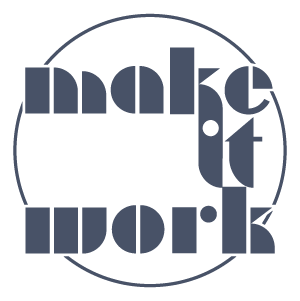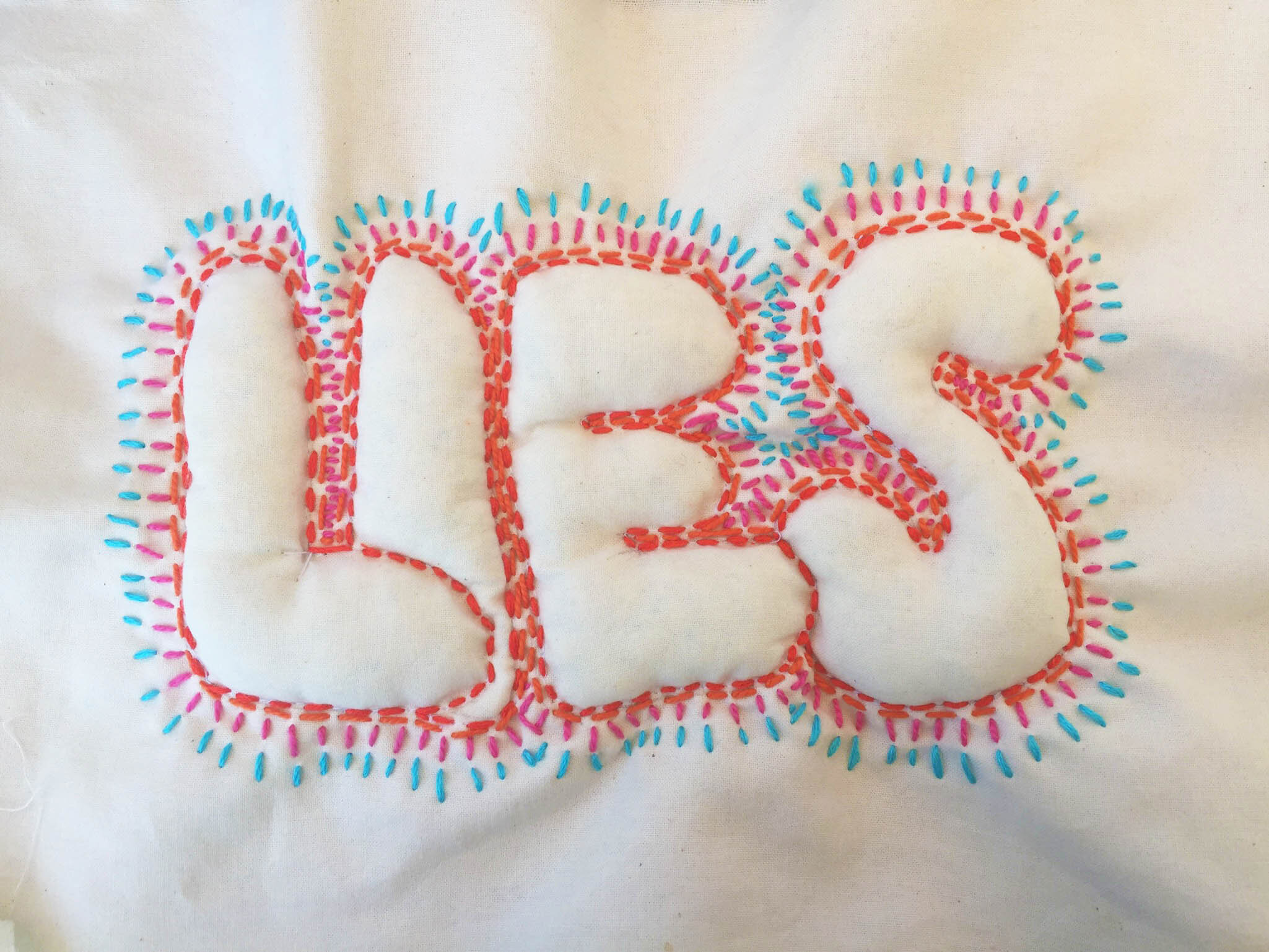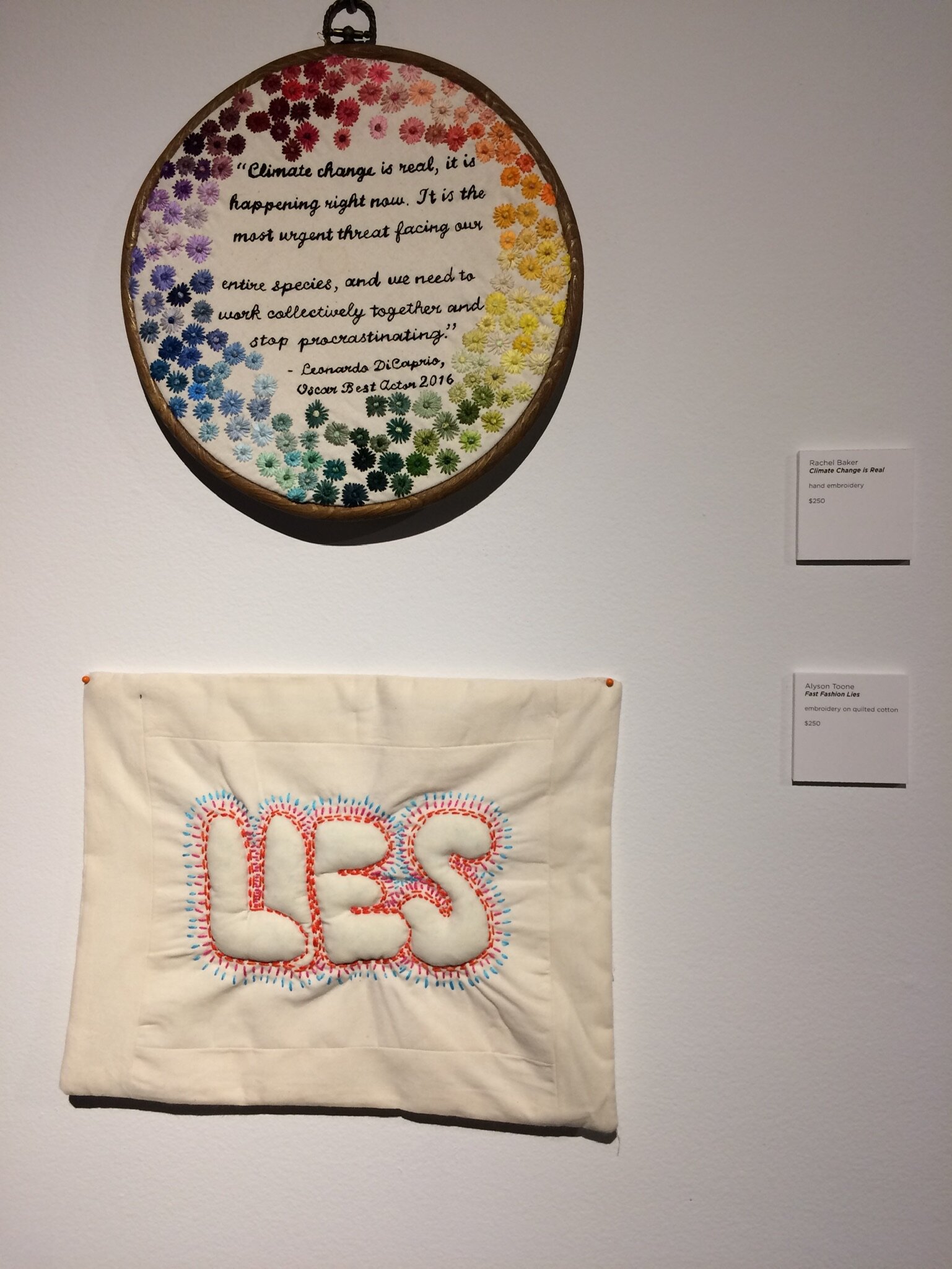Fast Fashion Lies at Undeniable Threads
“Fast Fashion Lies” Alyson Toone, 2019
This past February, my work was a part of a gallery show in Columbus, Ohio. The exhibition, called Undeniable Thread, focused on craftivism. Crafters from all over the country expressed their feelings on issues that affect them deeply. They used their crafts to spread awareness. The exhibition was held in conjunction with Midwest Craft Con 2020.
My craftivism issue is fast fashion. Having worked in the fashion industry as a designer, this issue was something that I constantly wrestled with during my career. in the 2000s, fast fashion was king. I was creating watered down, cheap clothing that hurt the planet, endangered animals and perpetuated inequality around the world. I have been on flying this flag for more than a decade. Yet, I stayed tethered to the fashion industry because of the rising cost of housing in New York City, and my student loan debt. Fashion paid me well, but cost me in mental health.
Understanding the rising costs of living on this planet, I understand why people buy jeans for $7. For most shoppers it seems like one of the few attainable thrills in today’s world. But one person’s thoughtless pleasure is a lot of other people’s stress. Looking at that $7 pair of jeans causes me to think about the full process of stressful conception in a design office to the underpaid worker producing the jeans to the replaceable unskilled retail worker who opened the fitting room for you to try the jeans on. In other words, $7 doesn’t add up to all the drama involved in creating that price point. To even come up with the concept of the jeans, it takes teams of people in various offices spending many hours planning. Data and research are cited in these meetings. The fashion industry is notorious for abusive managers and late nights, so there is a lot of abuse in this process. Designers spend days creating something just for salespeople, buyers, and production managers to whittle it down to the most basic of designs to meet the $7 price point. The low price is more important than good design. That design is prototyped and more discussions proceed until an order is made.
My family at the Undeniable Threads closing reception.
The jeans will tear easily because the fabric is too thin. Fabric is priced by weight, so companies try to get away with the lightest weight that they can without compromising the design. The fabric is probably a mix of cotton and elastane. The cotton is poor quality and planted by a group of underpaid workers in a different country. Elastane is a synthetic added to create a softer hand feel to the stiff low-quality cotton. The addition of elastane renders the garment no longer biodegradable. Those same jeans are dyed and finished with harmful chemicals that pollute rivers in Asia. We can assume that at that price point, the metal zipper, buttons, and rivets all contain lead. Those metal notions and the fabric were also created by more underpaid workers in mills.
“Fast Fashion Lies” on display in the Undeniable Thread exhibition.
For the jeans to be created at such a low cost, they have to be made in large quantities. The assembling factory wouldn’t take the order otherwise. The company that makes the order already knows that they will never sell such a huge quantity of jeans. After offloading their excess to retailers like Marshalls, they discard the clothing. They can’t get a proper tax write off if they just give the clothing away. Even just putting them in a dumpster is considered giving the clothing away. So the excess jeans are cut up before they are discarded so that they are rendered useless to everyone.
The jeans that do make it the store are stocked on racks by retail workers whose jobs have been devalued over the last century. Believe it or not, retail sales were once a well-paid job. Executives realized that its good for the bottom line to have replaceable unskilled laborers working in their stores. They don’t spend money or time training them well because the workers are not expected to stick around. This is why asking a salesperson a question in most retail stores is so unhelpful. The retail workers selling the jeans are working inconvenient hours scheduled for them by an algorithm. The algorithm was created as a way to devalue the higher paid manager position in the retail location. Now their low wages are justified in the eyes of executives looking to save pennies for maximum profit. The executive gets a raise for making the company more profitable. And those retail workers are buying those $7 jeans because that is all they can afford. Plus they have a 30% discount.
People who buy the jeans, excited by the deal, wear the jeans a few times until they rip (and they will rip). Then the buyers forget about the jeans in the back of their closet because they are excited about the next deal.
That $7 price tag is an illusion. And that is why I created my soft sculpture trapunto art piece called “Fast Fashion Lies.” When I see those jeans, I see big fat lies. -Alyson
Undeniable Thread closed on February 27 at Blockfort. Learn more about Undeniable Thread in this Columbus Alive article.





Alternative retailers for purchasing craft supplies online.